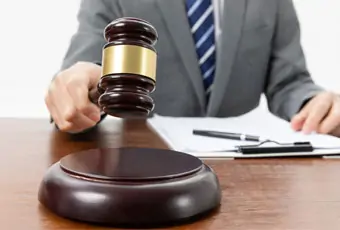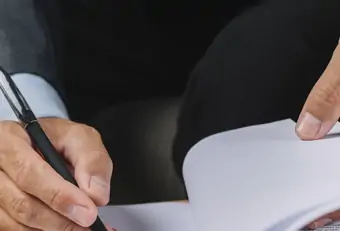Rock Hill Personal Injury Lawyer
Rock Hill Personal Injury Attorney
A personal injury claim may be necessary when someone’s negligence leads to another person’s injury. These kinds of injuries could take a number of different forms, from car accidents and slips and falls to medical malpractice. These injuries also often create a number of different costs for the victim, such as medical bills or property damage, that can really begin to add up quickly.
Additionally, there are costs that aren’t strictly monetary and are more psychological or emotional in nature. Examples include pain and suffering, loss of enjoyment in life, and even anxiety and depression that were a result of your injuries.
Fortunately, the law provides an avenue for you to receive compensation for injuries that were caused by someone else’s negligence. In most cases, these will be paid out by insurance companies for the individuals or institutions that caused the injury.
The problem, though, is that what is paid to you is always going to be a reduction in their profits, and that’s something they don’t want to part with willingly. It can be a fight to get what you’re owed, but when you work with a personal injury lawyer from the Tatum Law Firm, you have a team ready to fight on your behalf.
How You Can Prove Negligence in Rock Hill Personal Injury Case
The key to winning a personal injury claim is being able to prove that the other party is responsible for your injuries. They must be at fault for what occurred, and proving this is going to be a central component of what your lawyer does. Their investigation will be geared toward discovering evidence that can persuade the court of the way in which the defendant’s error led to an accident or situation that directly produced your injury.
To make this case in a personal injury claim, your lawyer must be able to prove three things:
- A Duty to Care: The first element of proving negligence is showing that the defendant had something called a duty to care. What this means is that, in the given situation, they have a responsibility to anyone who may be affected by their actions to take reasonable measures to try and ensure their safety. In some cases, this could be shown by the standards of this circumstance. For instance, in the case of anything involving a motor vehicle, there is generally an understanding that you have a duty to operate that vehicle in a way that is careful not to put others at needless risk. Similarly, in the case of Rock Hill medical malpractice, there is a duty to meet the “standard of care” in a given medical situation. In less familiar circumstances, your lawyer will need to persuasively demonstrate that there was a reasonable expectation to not create undue risk to others.
- A Breach of the Duty to Care; After demonstrating that there was a duty to care, your lawyer must be able to show that the duty was not met. Generally, this means the defendant didn’t behave as a reasonably careful person would in that same circumstance. To prove this is two-fold. There must be sufficient evidence to demonstrate what action or inaction the defendant took. Then, it must be shown how that action or inaction didn’t meet their duty to care. In many cases, this could involve a situation where an expert witness, someone who has credentials that demonstrate a thorough understanding of situations like the one in question, may be called to explain how the duty to care was breached. For instance, in medical malpractice cases, it can often be valuable to call a physician who is a peer of the defendant to explain what the standard of care would be and how it wasn’t met.
- Cause of the Injury: Lastly, the breach of duty must be the direct cause of the injury that the plaintiff suffered. This is another two-fold element. The breach must be shown to have led directly to the accident, incident, or other situation that occurred. Then, that situation must be shown to have been the cause of the injuries. This may seem like a given, but there are exceptions where a breach may have occurred that was not the cause of an injury. For instance, there could be a situation where a truck driver has violated the law by being on the road for too many consecutive hours without rest. That could reasonably be seen as a breach of duty. However, it’s unlikely to be seen as the cause of an accident if someone else runs into the truck while it is sitting at a stop light. Similarly, dishonest people have, in the past, attempted to tie an injury they suffered elsewhere to avoid having to pay for it themselves. It must be shown that the situation in question would not have happened if it wasn’t for the breach of duty, and the injury wouldn’t have happened if the situation hadn’t occurred.
Damages That May Be Awarded
If your lawyer has been able to demonstrate negligence on the part of the defendant, then you can argue that the defendant should be held liable for the costs you’ve incurred. The compensation for these costs is called damages.
To be eligible for damages, your lawyer must be able to show that the costs were a direct result of the injuries you suffered. The defendant’s team may attempt to argue against the connection in some cases, so proper documentation can be vital to ensuring you get proper compensation.
In the majority of personal injury cases in Rock Hill, SC, the damages that are paid out generally belong to two categories of damages:
- Economic Damages: When you’re injured, you will likely collect a variety of costs that have a direct financial impact. These could be things that have a bill associated with them, such as medical bills for diagnosis, treatment, and therapy for an injury — and these costs can all add up. In cases where the incident involved property damage, getting that property repaired or replaced can also have a variety of bills associated with it. Additionally, you might have to miss work as a result of the injury, which could lead to lost wages. In the case of particularly significant injuries, some of these costs could extend into the future if further treatment and therapies are necessary or if you have lost earning capacity. All of these costs that are easily calculable are paid out through economic damages.
- Non-Economic Damages: Non-economic damages cover the costs of an injury that aren’t easily calculated. Depending on the severity and kind of injury, a person can often experience things like pain and suffering, emotional distress, or loss of enjoyment in life. In some cases, permanent physical damage such as disfigurement, scarring, loss of a body part, or loss of use of a body part can occur. These kinds of things and other costs are more psychological and emotional, so they don’t have a specific cost associated with them. Looking at things like precedent and other calculations, they are given a value and paid out through non-economic damages.
There is also an additional category of damages that could be awarded in some situations, but they are not a part of most cases. Punitive damages are a category of damages that are meant to act as a punishment or deterrent for particularly egregious or malicious behaviors.
Most personal injury claims are a result of honest mistakes, but sometimes, there might be a part of a claim that the court will find worthy of awarding punitive damages. Your personal injury lawyer can help you understand if that may apply to your case.
What Could Limit the Damages You Receive?
There are a few different ways the damages you might receive could be limited. One possibility is a cap on damages. In most South Carolina injury claims, a cap on the damages won’t come into play.
However, in the case of medical malpractice, there is a cap on the non-economic damages that can be received. The cap adjusts every year according to inflation, so your lawyer can help you with the latest limits. There are actually two caps — one of which caps the non-economic damages that any single individual or institution can be required to pay. The other is a cap on the total award of non-economic damages if there is more than one defendant.
South Carolina also has a cap on the punitive damages that can be awarded in personal injury cases. The punitive damages awarded must not exceed whatever is the greater of two options:
- $500,000
- Three times the sum of the plaintiff’s economic and non-economic damages
The other thing that could potentially limit the damages you can collect is South Carolina’s comparative negligence rule. The rule is a way to account for situations where the plaintiff bears some responsibility for the accident occurring. The defendant may attempt to show some negligence on the part of the plaintiff. If the defendant can successfully demonstrate that the plaintiff is partially at fault, what happens next is going to depend on the percentage of fault in the eyes of the court.
If the plaintiff is found to be more at fault than the defendant, then they will be unable to collect any damages. In other cases, the damages the plaintiff can collect will be reduced by the portion of responsibility for the accident that they bear. For instance, if the plaintiff is found to have 10% fault on an award of $50,000, then they will only receive $45,000.
When You Can File a Personal Injury Claim in Rock Hill?
In personal injury cases, there is a limit to how long after an injury occurs that you can file a claim against the other party. This limit is set by the statute of limitations. Generally, that limitation is three years for most personal injury cases. However, it’s not a blanket rule as there can be some variance depending on the kind of claim, who the defendant is, and when the injuries were discovered.
It’s important to get in contact with a legal firm, like the Tatum Law Firm, quickly following an injury. We can help determine when a claim is going to need to be filed. Additionally, the more time we have to investigate and possibly negotiate with the insurance company, the better the chances of a favorable outcome for your case.
What a Rock Hill Personal Injury Lawyer Does
At the Tatum Law Firm, we aggressively pursue our clients’ restitution. The process typically begins with an investigation of the circumstances surrounding the injury. We examine every possible angle to understand all the possible parties that may be liable for what happened.
The investigation involves both gathering facts to make the case against the liable parties and ensuring there is a solid defense against liability on your part. Precisely how an investigation proceeds and what evidence is gathered will depend on each accident. It could involve looking for photographic and video evidence, examining police reports, talking with the parties involved, or anything else that could be relevant to the situation.
Another crucial component of what we do is work on your behalf with the insurance companies. This is important because it can help keep you from saying something that might later be used against you to say that you admitted fault. It’s possible that in negotiating with the insurance companies, we may be able to avoid having to take the case to court.
This can be a preferable outcome in some situations as it avoids the lengthy time requirement and expensive process of a court case. It also avoids the risk of taking the case before the court, where even the strongest case is subject to the whims of the court.
Sometimes, a negotiated settlement simply isn’t an option. In those cases, we are always prepared to take a case to court. We represent you and make the case for fault and liability on the part of the defendant. A civil claim, like a personal injury case, can involve presenting evidence, calling eyewitnesses, or even interviewing expert witnesses.
We are always prepared to use every tool available in your favor. We are also ready to defend against accusations of your fault in the case as well. We aggressively pursue the optimal outcome for our clients.
What to Look for in a Rock Hill Personal Injury Lawyer
When working with a personal injury lawyer, you want to know that you are working with the right lawyer. The truth is, no lawyer can guarantee the outcome of a case. Therefore, the most important thing is that you find a lawyer you can feel confident working with. You want someone you trust to take on such a significant responsibility. After all, the outcome could be the difference between you facing a pile of bills and expenses or having peace of mind knowing your costs are covered. While it’s important to find a lawyer who is knowledgeable, experienced, and driven, more than anything else, you will want to make sure it is somebody that you trust. We hope you’ll give us here at the Tatum Law Firm the chance to earn your trust.
What To Do When You’re Injured by Someone Else’s Negligence
Personal injury cases can shift on a variety of factors. We would like to think that whatever happened could be replayed precisely and a judgment made on that basis. The reality is, though, that the situation will need to be pieced together. Lawyers from both sides will use a wide variety of things to make their case.
Because all the evidence and information are so crucial to the situation, there is a lot you can do to help your case in how you handle things following an injury.
Here are a few tips and ideas you’ll want to try to remember in both the immediate aftermath of the injury and the days and weeks to come:
- Get medical help. In many cases, especially if there is an obviously significant injury, someone will have called for emergency services. If paramedics have been called to the scene of your injury, be sure to let them check for any traumatic injuries. If they aren’t called, or even if they are and there’s no need for you to go to the hospital, it still is a good idea to go and get a full medical examination. You want to make sure there wasn’t anything missed and that any injuries that become apparent after the adrenaline wears off are examined. It’s also important that you take this step quickly, as any delay may be used to argue against the seriousness of the injuries or even that they happened in the interim between the incident and your medical examination.
- Document what you can. A critical component of the entire personal injury claim process is documentation. It begins with documenting the scene of the accident. Of course, if your injuries are too severe, that might not be something you are going to be able to do personally. In that case, you may be able to have someone you trust document the scene. Photos of whatever caused the injury, the injury itself, and anything else that might be relevant can help your lawyer in making your claim. If there were any witnesses, it would also be helpful to get their contact information if at all possible. Continue documenting things after the initial injury as well. You’ll want to keep a good record of any medical visits, as well as any costs that you face because of the injury.
- Use caution when discussing the situation. What you say about the injury and circumstances that surround it may end up being an important part of your case. In particular, if the defendant’s lawyers are able to get a hold of anything you said that sounds like taking the blame, they will likely use it to argue against the liability of their client or at least to reduce your potential damages through comparative negligence. That’s why you must be careful what you say about the injury situation and to whom you say it. This is especially true if you are speaking with anyone from an insurance company. Generally, you are going to want to allow your lawyer to do most of the communicating since they are trained in how to handle these kinds of situations.
- Contact the Tatum Law Firm. It’s a good idea to contact a lawyer soon after being injured. If you contact us quickly after an injury, we will have more time to investigate and prepare for your claim. We will also be able to help you with communication and negotiation with the insurance companies involved so that you don’t accidentally say something that could be used against you later on.
Let us Fight for Your Personal Injury Claim in Rock Hill
When you are injured by an accident that is someone else’s fault, you deserve to be compensated for everything you’re dealing with. You’re likely looking at expenses like medical bills, property damage, and lost wages from missing work. In many cases, you might be dealing with some emotional or psychological disruption as well. These costs can add up and become burdensome quickly. The law, though, demands that you be compensated for everything you’re dealing with.
What you’re owed is meant to be paid out by insurance companies. Unfortunately, though, these insurance companies are less than eager to pay out what they’re supposed to. This means you’ll probably have to fight to get what you’re owed, but you don’t have to do it alone.
At the Tatum Law Firm, we are eager to fight on behalf of our clients. It’s our job to seek out what you’re owed. We investigate our clients’ cases to understand who is liable and how to defend against any reduction in damages by claims that you are liable. We will negotiate with the insurance companies to see if an agreeable settlement can be met.
If that won’t work, though, we are always prepared to fight for our clients in court. If you need help with your Rock Hill personal injury claim, don’t hesitate to contact us today.






